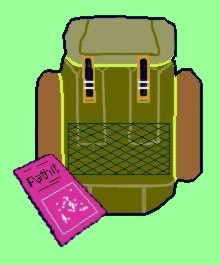 Site Map |
|
 | Incorporating the Countryside Code 2004 |
| 1. | Cooperate with the walk Leader to keep everyone together as a cohesive and safety conscious group. |
| 2. | Leave all gates as you find them. Make sure the person at the back knows which ones to close. Do not leave a gate that you have opened unattended. |
| 3. | Keep to the footpath and walk in single file across fields. Rights of way along footpaths are quite narrow, usually one metre. |
| 4. | Use gates and stiles where provided. Do not climb over walls, fences or hedges. |
| 5. | Do not drop litter or leftover food, it can be dangerous to wildlife and farm animals and can spread disease. Take your litter home, littering and dumping rubbish are criminal offences. |
| 6. | Respect the natural environment and leave it undisturbed. Do not make excessive noise, pollute water resources, pick wild flowers, remove or damage rocks, plants or trees, and do not interfere with wild life, nests or lairs or remove eggs. |
| 7. | Protect our heritage, be careful not to disturb sites of antiquary. |
| 8. | Leave farm machinery, livestock and crops well alone. Never interfere with animals even if you think they are in distress, try to alert the owner or farmer instead. |
| 9. | Give all animals plenty of space, they can behave unpredictably if you get too close especially if with their young or frightened by dogs. |
| 10. | Guard against all risks of fire, it can be devastating to wildlife, habitats, people and property. |
| 11. | On country roads everyone should keep to the same side, as a general rule the right so as to be facing on-coming traffic but use common sense when on bends or narrow lanes. For example a group should not scatter to both sides of a road to let a vehicle pass but all go to the same side. |
| 12. | Make sure you are properly attired and equipped for the type of walk and the worst of the weather. Always carry waterproofs, spare food and sufficient drinks and in winter additional warm clothing and a torch. Always be mindful that a walk could take longer than expected. |
| 13. | On walks over wild or exposed terrain having a compass, whistle, first aid kit, emergency food supplies and a survival bag might prove vital. |
| 14. | A knowledge of the meaning and use of whistled signals is an asset:- One short peep - To call attention when moving off or changing direction One long blast - To call a stop to someone going the wrong way or getting too far ahead Two medium blasts - Signal to companion; where are you? Two short peeps - Acknowledgement to companion; I am here Six sharp blasts - International distress signal (repeated every three minutes if necessary). Three sharp blasts - Reply to International distress signal (with one minute's pause). |
| 15. | DOGS By law, dogs must be kept under control so that they do not disturb or scare farm animals and wildlife. They must be kept on a lead in most areas of open country and common land between 1st March and 31st July and at all times near farm animals. Otherwise on public paths they do not need to be on a lead as long as they are under close control and their obedience can be relied upon. At certain times other restrictions may be placed on dogs so please heed and follow any signs. Dog owners must always clean up after their pets and get rid of the mess responsibly. |
 Site Map |
|